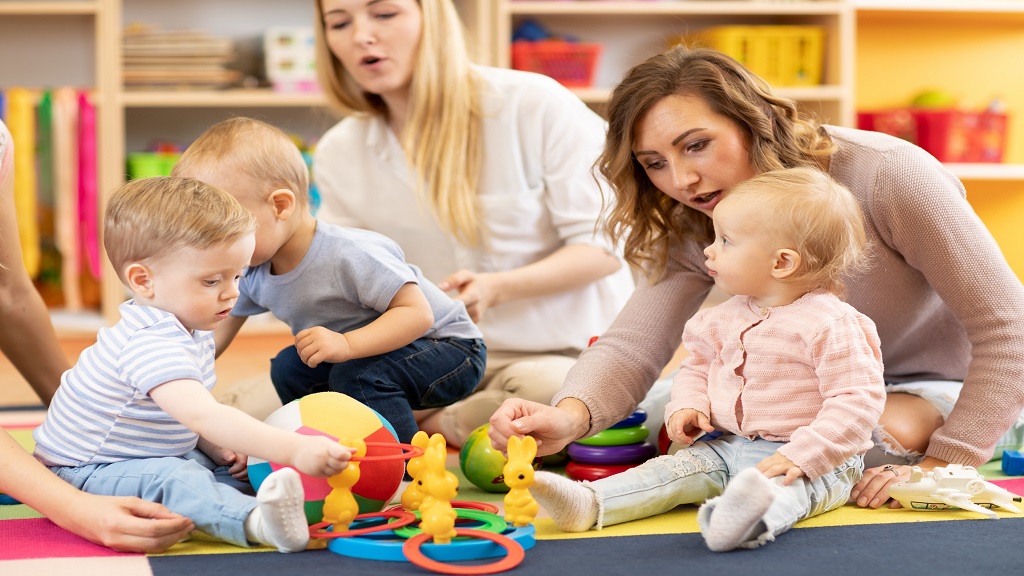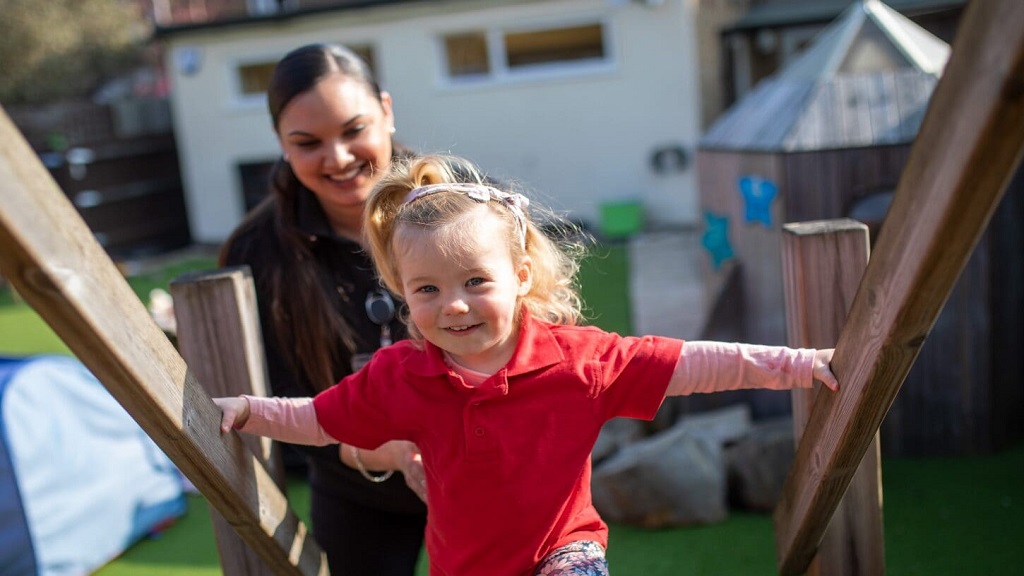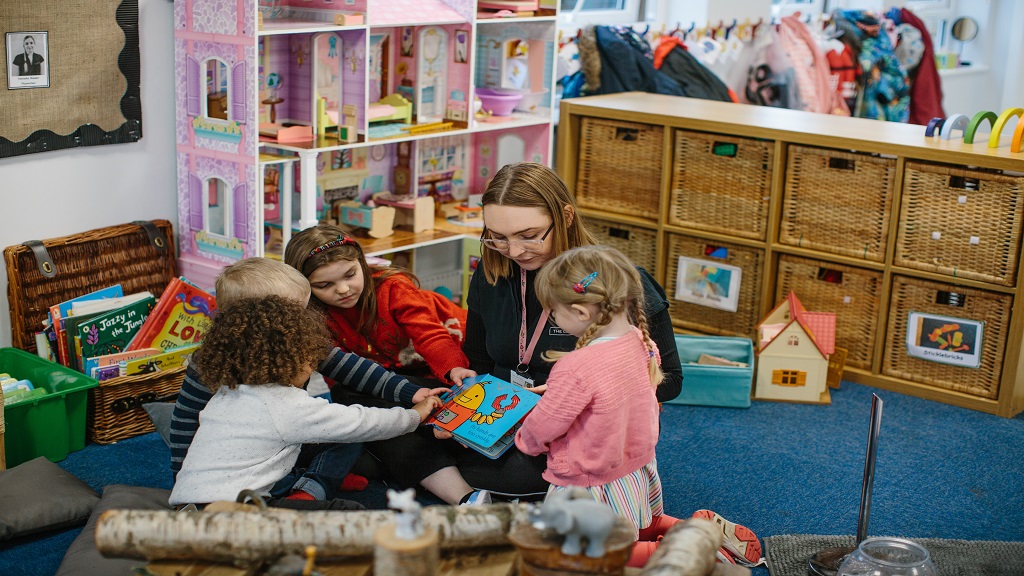Family First are big advocates of team members completing apprenticeships and learning while they earn, with more senior staff now…
Will Level 3 revamp boost recruitment?
A DfE consultation on reforming the Early Years Educator qualification closes shortly – but does it go far enough? Charlotte Goddard finds out

Nurseries are reporting huge difficulties in recruiting and retaining Level 3 qualified practitioners with the skills required to deliver high quality childcare provision. Seven out of ten respondents to an Early Years Alliance (EYA) survey cited a lack of candidates holding the necessary “full and relevant” qualifications as a barrier to recruitment. Many went on to say that even when potential recruits held a relevant Level 3 qualification, they still failed to demonstrate the right skills for the role.
The government pledged to review the Level 3 Early Years Educator (EYE) qualification in October 2021, as part of measures to address the impact of the Covid-19 pandemic on young children. The review is part of a drive to change perceptions of the sector from “just childcare”, existing primarily to enable parents to work, to “early education” for the benefit of the child. It also aims to improve consistency across the sector, as employers complain that levels of competency among Level 3 practitioners vary widely.
The introduction of the EYE in September 2014 was supposed to help with recruitment in the sector, but it has not proved to be the case. Settings struggle to pay Level 3 staff significantly more than their less qualified peers, and this gives practitioners little incentive to upskill. A 2022 survey led by educational charity and awarding body NCFE, commissioned by the government to carry out the EYE review, found that 75 per cent of early years practitioners, nursery owners and managers who are considering leaving the profession gave “poor pay” as a reason.
There is also confusion around the qualification requirements of the sector. The NCFE survey found that 65 per cent of parents said they didn’t know the qualification requirement for nursery managers, and of those who thought they knew, 43 per cent incorrectly believed it was higher than Level 3. In fact, nursery managers must hold a “full and relevant” Level 3 qualification, and there must be a Level 3 staff member present as part of the ratio of staff to children with each group of under-twos, twos and three- to four-year-olds.
Following the publication of NCFE’s findings and recommendations, the government is consulting on proposals to revamp the criteria which must underpin all EYE courses. The sector has until 23 January to make its views known on proposals including:
Personal, social and emotional development (PSED)
The government wants to hear about ways to ensure practitioners are fully equipped to deliver PSED, including understanding how children’s ability to self-regulate changes according to their age and development.
Links with Level 2
The new EYE criteria will be based on the Level 2 Early Years Practitioner qualification, helping learners to progress easily from one qualification to the other. and ensuring those who go straight into Level 3 do not have gaps in their knowledge.
Safeguarding and health and safety
In the NCFE survey, the vast majority (91%) of parents said they expected a Level 3 qualification to prepare learners to “safeguard and promote health and safety of children”. The new criteria will have a greater focus on safeguarding and health and safety, giving practitioners a better understanding of their own role. There will be a new focus on weaning, for example, with practitioners equipped to recognise and deal with choking, and prepare food safely for different age groups.
Child development
At present employers can’t guarantee that all Level 3 graduates will have a solid grounding in working with babies, as the current criteria are not sufficiently age-segmented. The new proposals specifically mention “babies” and “children” and ensure the needs of children of all ages are considered in relation to each section.
Review respondents also told NCFE that newly-qualified Level 3 learners do not always understand how to marry knowledge of child development with practical issues such as safeguarding. The new EYE will have a greater focus on the application of theoretical knowledge to practice.
Communication
The new criteria will centre practitioners’ communication skills, equipping them to communicate with all children in ways that will be understood, including verbal and non-verbal communication, and use a range of communication methods to exchange information with children and adults. There is also now mention of the practitioners’ role as an advocate for the voice of the child.
Special educational needs and disabilities (SEND)
SEND has been included as a specific topic for the first time, with Level 3 practitioners expected to understand statutory guidance in relation to the care and education of children with SEND and to be able to work in partnership with others to support them.
Role and responsibilities
Review respondents said that the existing qualification does not prepare practitioners for the reality of working in an early years setting, with many lacking understanding of practical workplace skills, such as the different roles in a nursery, engagement with Ofsted and developing professional relationships.
The new criteria will equip practitioners to understand their own role, responsibilities and impact, as well as the roles and responsibilities of outside agencies and professionals that support the setting.
Following children’s interests
The new criteria will focus more on inclusive practice, ensuring assessment and activities are appropriate and relate to a child’s interests, developmental stage, and needs. Three quarters (76%) of practitioners felt the Level 3 qualification should cover adapting curriculum content to child’s interests and needs, as did 84 per cent of parents.
Wellbeing
When parents were asked what they thought the early years curriculum should cover, wellbeing (90 per cent), emotional intelligence skills (80 per cent) and communication skills (80 per cent) ranked above academic skills such as numeracy and literacy (65 per cent). The new criteria aim to equip practitioners to promote health and wellbeing in settings, and explain, plan, and carry out respectful care routines appropriate to the development, stage, dignity and needs of children.
Literacy and numeracy
Reference to phonics has been removed, with Level 3 learners asked to understand the “development of emergent literacy and numeracy in children” rather than “understand systemic synthetic phonics in the teaching of reading”
What is missing?
Stella Ziolkowski, director of training and quality at National Day Nurseries Association (NDNA), urges employers and practitioners to take part in reviewing the proposed changes. “We know that the knowledge, skills and qualification level of practitioners are key factors in providing high quality early education,” she says. “It’s crucial that qualifications are relevant and support staff to improve practice and make a real difference to the children they work with.”
However, the NDNA believes the consultation does not go far enough to address employers’ concerns. “This consultation fails to address the quality of delivery with many nursery owners telling us that on exit of Early Years Educators training, individuals still have learning needs – for example a lack of understanding of the EYFS and limited knowledge of child development,” she says. “We would like this consultation to transform this by specifying that training providers and colleges should employ degree level tutors and assessors to deliver Early Years Educator. This would greatly improve the quality of delivery and as a result the students’ readiness to operate at Level 3 on exit.”
NCFE has also made a number of recommendations arising from its extensive review, which are not part of the consultation. It is calling for Level 3 graduates to undergo a year as a newly qualified practitioner, during which they would continue to receive support and mentorship from more experienced peers, and would undertake additional CPD. It also recommends the introduction of Industry Champions to raise standards and quality in early years, and an awareness campaign targeting colleges, careers guidance departments and training providers, to counter misinformation about the perceived “non-academic” nature of the sector.
What’s next?
Following the consultation, the final set of criteria will be published this spring, with awarding bodies and training providers required to incorporate them into existing and new courses by September 2024, including apprenticeships and T-Levels. The changes will impact qualifications from Level 3 and above, because higher level early years qualifications, including degrees, must meet the EYE criteria to be “full and relevant”. Level 3 practitioners already working in settings and those starting courses before September 2024 will not be affected by the changes.
Latest Features
NMT takes the temperature of the early years market and offer tips for marketing, launching a new nursery, and utislising…
In this leadership series, NMT speaks to Gareth Degenhart, founder and managing director, The Lime Trees What has been your…




